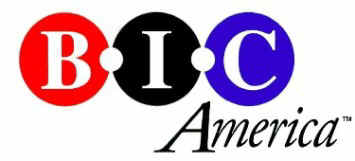[Apr. 26th, 2005|02:13 am]
I had a ticket for the 10 AM feature "Edgar G. Ulmer - The Man Off Screen" but I just couldn't pull myself together to get in there for it. I needed 12 hours AWAY from the Kabuki. So wussed out for 'just' a triple feature (1 at the Kabuki and 2 at the Palace of Fine Arts).
"Ronda Nocturna" (dir. Edgardo Cozarinsky, Argentina/France, 2005, 82 mins.) We follow a male prostitute/dealer through a night in Buenos Aires. Yes, I know it sounds DREARY, however, Cozarinsky has cast a beautiful young man (Gonzalo Heredia, who could be Gael Garcia Bernal's twin!) as our awkward hero, Victor. Heredia's screen presence makes it all that much easier to follow him through his journey into the underworld. Cozarinsky has also given it a 'magical' quality so that, as the night wears on, Victor enters sort of a waking dream. It is not unlike Fellini's "La Dolce Vida," though darker and featuring an impoverished demographic. Plus, the soundtrack is composed of tangos, which distracted me from the diseased coughing that was going on two rows behind me! ("Cover your mouth, please!") I really liked this a lot!! Perhaps I shouldn't have, but I did!
What I should have like more was the silent double feature at the Palace, featuring the Alloy Orchestra:
"Blackmail" (dir. Alfred Hitchcock, Great Britain, 1929, 75 mins.) and
"The Phantom of the Opera" (dir. Rupert Julian, Great Britain, 1929, 79 mins.)
I enjoyed the film "Blackmail" more than the score. But then, maybe that is why Bernard Herrmann is so associated with Hitchcock's films, because he got it JUST right! The visual style of "Blackmail" is so nuanced that you come to understand that musically one would be forced to make bold choices for Hitchcock: either be subliminal (i.e. "The Birds") or romantically orchestral (i.e. "Vertigo"). The Allow Orchestra (which is a trio of percussionists, who double on a few woodwinds) has the capacity for subliminal and/or pounding accompaniment, but not overly orchestral. They are perfectly suited for the pounding drive of their score for Keaton's "The General" or their brilliant scores for "Man With a Movie Camera" or "Metropolis." Whereas, here in "Blackmail," they were forced to be much more sedate. Mind you, I enjoyed what they did immensely more here than what the American Music Club did on Saturday night to "Street Angel." But this score sort of pales to the magnificent sounds they have created in the past.
As far as "The Phantom of the Opera," I was expecting a booming score, with shades of Andrew Lloyd Weber in the back of my head. Ironically, except for the unmasking and the final chase, this classic screen version really isn't all that exciting. The Alloy's score was more enjoyable than the film, as far as I was concerned. I could feel them chomping at the bit to explode into the screen, which presented its own tension. I just was a bit bored with the film itself. There is nothing extraordinary in its technique, though one could point to the early use of shadows as setting the precedent for Universal Studio's horror-noir that would dominate the 1930's. This print included the restored tinting through out and the two-strip technicolor sequence for the Masked Ball scene. It's always sort of fun to see Lon Chaney chew the scenery, but when he isn't on screen, the film just falls flat for me. And the Alloy Orchestra just couldn't save that, as hard as they tried.
I did pick up a DVD of Eisenstein's "Strike" featuring their score, and a VHS of their collaboration with Jane Gillooly on "Dragonflies, the Baby Cries," which were on sale in the lobby!
Tomorrow: Yes, another triple feature... I can't remember what it's gonna be though...
Monday, April 25, 2005
48th San Francisco Intl. Film Festival - Day 4
Category:
Film Festivals,
Movies
Subscribe to:
Post Comments (Atom)



















 Pseudomyxoma Peritonei (Huh???)
Pseudomyxoma Peritonei (Huh???) Fluidtoons! By Brett W. Thompson!
Fluidtoons! By Brett W. Thompson!
 THE EVENING CLASS (by Michael Guillen)
THE EVENING CLASS (by Michael Guillen) Television Without Pity!
Television Without Pity! John Rutherford's Blog for COLT Studio Group
John Rutherford's Blog for COLT Studio Group



No comments:
Post a Comment